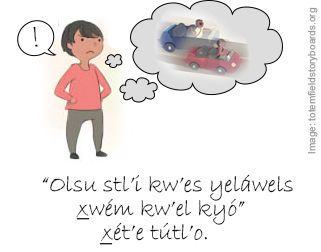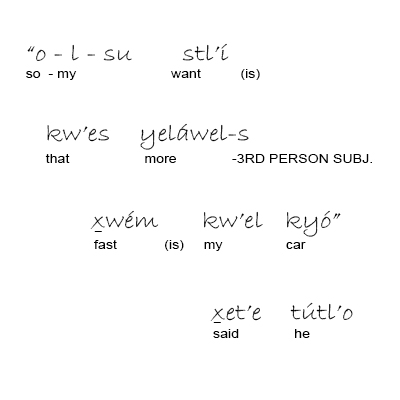“Olsu stl’í kw’es yeláwels x̲wém kw’el kyó,” x̲ét’e tútlo. means ‘He said “I want my car to be faster”‘.
Literally it means: ‘ “So my want (is) that more fast (is) my car,” said he’.
Vocabulary and pronunciation
- x̲ét’e – to say
- tútl’o – he, him
- osu – so (this is a general sentence connecter, not always translatable into English)
- -l – my (the ‘full’ form for my is tel, but in some structures it becomes just -l)
- olsu– so my (here the -l ending goes ‘inside’ of osu, to make olsu – so my)
- stl’í – a want, a need (see el stl’í kw’es)
- kw’es – that
- yeláwel – more (see yeláw)
- -s – the -s has several uses in the language, in this case it marks that there is a ‘third person’ subject (i.e. the thing we are talking about is not you or me). See futher notes on this ending below in this post.
- x̲wém – fast
- kw’el – my (you would normally say tel, but you use kw’el when talking about distant objects, or objects that exist as possibilities)
- kyó – car
Audio: Elizabeth Herrling
Structure
The structure of this phrase is as follows:
See Olsu stl’i kw’es yeláwels x̲wém kw’el kyó for more information about that part of the phrase.



No comments yet.